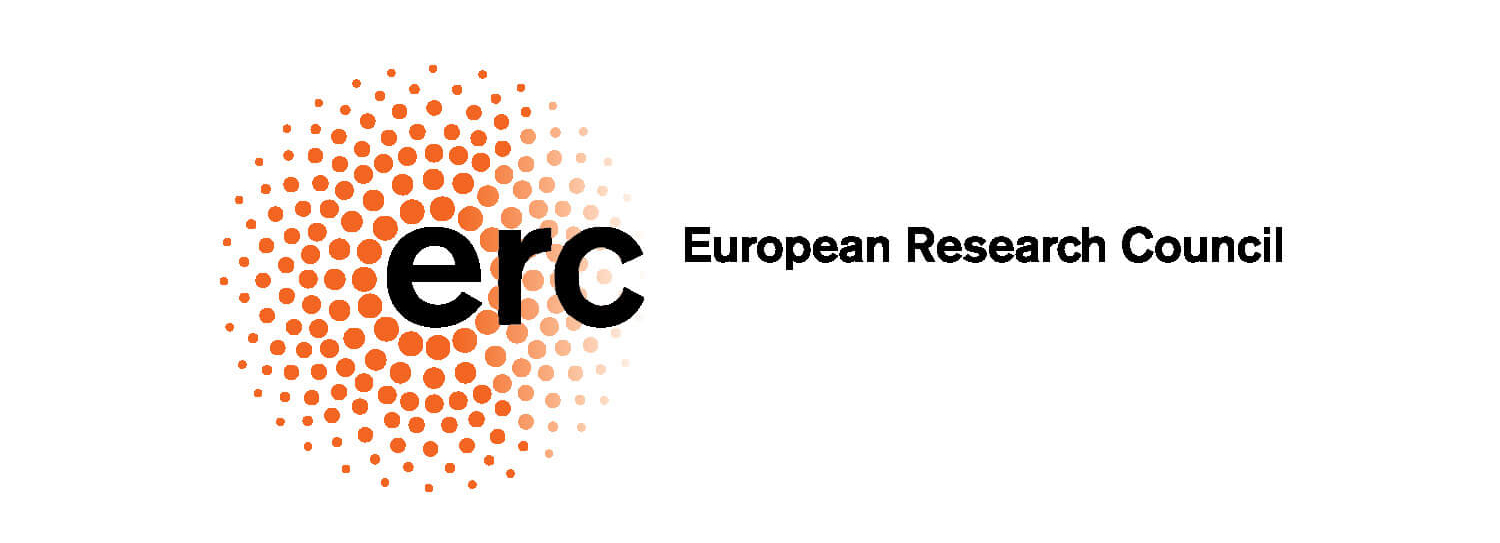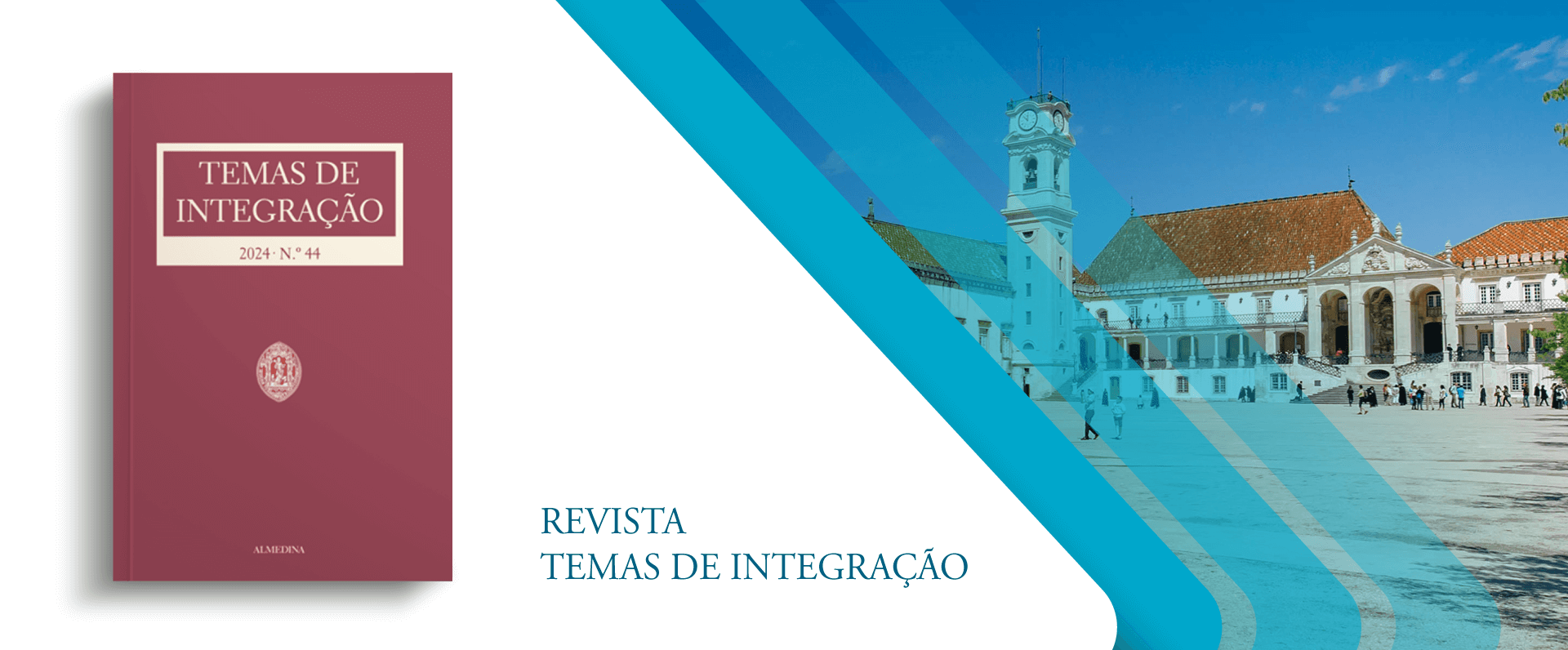NOVO PRAZO: EDIÇÃO COMEMORATIVA DOS 30 ANOS DA REVISTA TEMAS DE INTEGRAÇÃO
Lançada em 1996, a Revista Temas de Integração (RTI) foi concebida como um espaço de reflexão sobre a recém-criada União Europeia e sobre outros movimentos de integração regional que, então, moldavam um mundo em acelerada globalização no período pós-Guerra Fria, no qual a cidadania e a democracia assumiam crescente centralidade. Ao completar trinta anos de existência em 2026, a publicação consolida-se como um testemunho vivo da evolução das ideias de integração, cooperação e soberania ao longo de três décadas marcadas por profundas transformações globais.
Neste contexto, a edição de 2026 da Revista será dedicada ao tema «Que Futuro para os Espaços de Integração?» e aceitará resumos de propostas de artigos até 31 de janeiro de 2026.
Os editais completos em português, espanhol, inglês e francês podem ser consultados em:https://aeec.fd.uc.pt/submissao/
Mais informações através do endereço eletrónico: temasdeintegracao@fd.uc.pt
A Temas de Integração é uma revista académica com revisão por pares que abrange uma ampla gama de temas relacionados com a integração europeia e regional. Em formato digital e acesso aberto a revista adota uma perspetiva transnacional, multidisciplinar e comparativa. a Revista Temas de Integração acolhe contribuições originais em áreas como o direito, estudos europeus e internacionais, economia, ciências sociais e políticas, bem como outras disciplinas interessadas no processo de formação de espaços regionais no contexto mundial.
Temas de Integração is a peer-reviewed journal that covers a wide range of subjects related to European and regional integration. Published in a digital, open-access format, the journal adopts a transnational, multidisciplinary and comparative perspective. Temas de Integração welcomes original contributions in fields such as law, European and international studies, economics, social and political sciences, as well as other disciplines concerned with the development of regional spaces within the global context.

Professor Doutor Manuel Lopes Porto
Tenho um grande gosto em escrever umas palavras de boas-vindas aos leitores da revista Temas de Integração, decorridos quase três décadas desde a sua criação, tendo em conta o que ela tem significado e continuará a significar.
Foi criada em boa medida pela Associação de Estudos Europeus da Faculdade de Direito da Universidade de Coimbra, que em 1983, ainda bem antes da entrada de Portugal nas Comunidades, criou um dos primeiros Cursos de Estudos Europeus do nosso país. Assim aconteceu para se corresponder à necessidade de se facultar a várias gerações o conhecimento de uma realidade que iria ter um grande relevo nas nossas vidas, muito em particular na nossa atividade económica.
E tendo-se naturalmente também em vista chegar a muitos outros interessados, mesmo a quem ia concluindo a frequência do Curso, em 1996 foi criada a revista Temas de Integração.
Julgamos tratar-se de uma revista com um lugar marcante no nosso quadro editorial, como revista dedicada à temática da integração; valendo a pena sublinhar que desde o seu início teve uma estreita parceria com o Brasil, logo na sua instituição.
Assim acontece tratando-se de uma revista que ao longo das décadas tem vindo a considerar o papel importante dos espaços de integração, em particular da União Europeia e do MERCOSUL. Mas estamos agora a ampliar grandemente essa abrangência espacial, enveredando por uma clara maior internacionalização do público e dos colaboradores da revista; alargando as visões sobre os espaços de integração, num mundo global em que, com realismo, só com as suas dinâmicas poderemos ter um desenvolvimento maior e uma maior aproximação entre as pessoas.
Professor Doutor Manuel Lopes Porto
It gives me great pleasure to write a few words of welcome to the readers of Temas de Integração, almost three decades after its creation, in recognition of what the journal has represented and will continue to represent.
The journal was established largely through the initiative of the European Studies Association of the Faculty of Law of the University of Coimbra, which, in 1983—well before Portugal’s accession to the European Communities—created one of the first European Studies courses in the country. This initiative arose from the need to provide successive generations with knowledge of a reality that would come to play a decisive role in our lives, particularly in our economic activity.
With the aim of reaching a wider audience, including those who had completed the course, Temas de Integração was launched in 1996. We believe it occupies a distinctive place in the Portuguese editorial landscape as a journal dedicated to the study of integration, and it is worth emphasising that, from its inception, it established a close partnership with Brazil.
Over the decades, the journal has consistently addressed the significant role of integration spaces, in particular the European Union and MERCOSUR. Today, however, we are greatly expanding this geographical scope, moving towards a clearer internationalisation of both readership and contributors. In doing so, we seek to broaden perspectives on integration processes in a global world, where—realistically—it is only through such dynamics that we can achieve deeper development and foster greater closeness among peoples.
It gives me great pleasure to write a few words of welcome to the readers of Temas de Integração, almost three decades after its creation, in recognition of what the journal has represented and will continue to represent.
The journal was established largely through the initiative of the European Studies Association of the Faculty of Law of the University of Coimbra, which, in 1983—well before Portugal’s accession to the European Communities—created one of the first European Studies courses in the country. This initiative arose from the need to provide successive generations with knowledge of a reality that would come to play a decisive role in our lives, particularly in our economic activity.
With the aim of reaching a wider audience, including those who had completed the course, Temas de Integração was launched in 1996. We believe it occupies a distinctive place in the Portuguese editorial landscape as a journal dedicated to the study of integration, and it is worth emphasising that, from its inception, it established a close partnership with Brazil.
Over the decades, the journal has consistently addressed the significant role of integration spaces, in particular the European Union and MERCOSUR. Today, however, we are greatly expanding this geographical scope, moving towards a clearer internationalisation of both readership and contributors. In doing so, we seek to broaden perspectives on integration processes in a global world, where—realistically—it is only through such dynamics that we can achieve deeper development and foster greater closeness among peoples.

European Research Council
“Open Science encourages collaboration across academia, industry, public authorities, and citizen groups. When these groups are invited to participate in the research and innovation process, creativity and trust in science increases. This engagement process leads to greater transparency in the research process, greater potential impact of research, more efficient research processes and opportunities for global scientific collaboration.”
Sede e Redação · Head Office and Editorial Office
Faculdade de Direito da Universidade de Coimbra – 3004-528, Coimbra – PORTUGAL
E-mail
temasdeintegracao@fd.uc.pt

